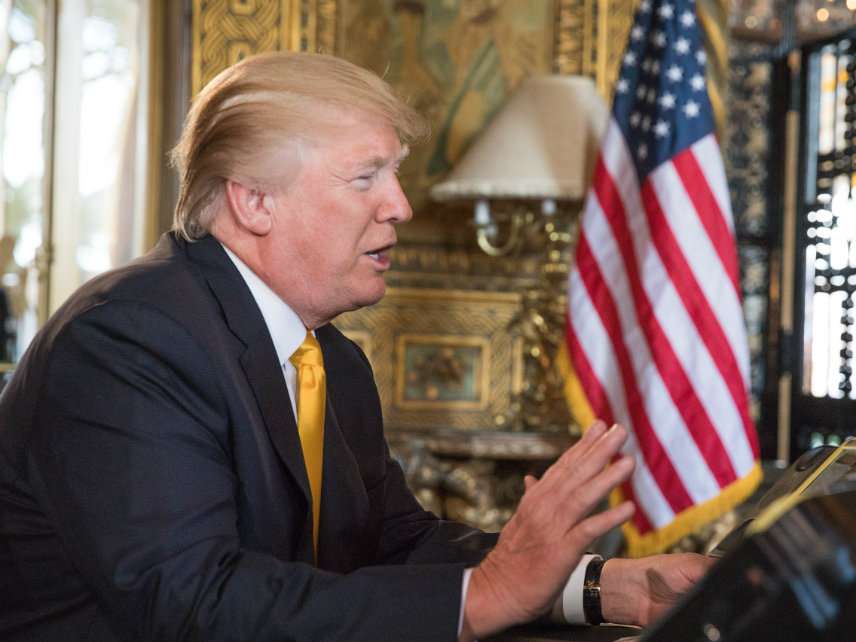Trump Isn't a Self-Made Man. His Wealth Is the Product of Years of Government Subsidies.
The family real-estate business was powered by subsidies and cheap government-backed loans.

Last week The New York Times released a major investigative report into President Donald Trump's personal finances. The story, which took over a year to produce and relied on a massive trove of confidential documents, describes the accumulation of the Trump family's real estate fortune and the mechanisms that Trump's father, Fred C. Trump, used to pass wealth on to his children, with Trump receiving an outsized share. The story is relevant because the president's refusal to release his tax returns has left the public with few detailed glimpses into his financial dealings.
The report makes a strong case that Trump's public claims to being wealthy as a result of his business acumen ("I built what I built myself") are a myth created by Trump and abetted by allies in the media.
Trump has said that he built his empire with a "very small" $1 million loan from his father. The Times reports that, in fact, Fred funneled some $413 million to his son over the years, keeping him afloat through an array of splashy but disastrous real-estate investments that collapsed in a series of high-profile bankruptcies. The report also advances the idea that the generational transfer of wealth was illegal, accusing Trump in the very first sentence of having participated in "outright fraud."
Although it is not the focus of the story, the Times also makes clear that Trump's father—and subsequently Trump himself—amassed a real estate fortune in large part by taking advantage of various government-backed real estate loans and subsidies.
"Fred Trump would become a millionaire many times over by making himself one of the nation's largest recipients of cheap government-backed building loans," the report says, citing Gwenda Blair's book The Trumps: Three Generations of Builders and a President. And the elder Trump passed on both the knowledge of how to use subsidized loans for personal profit and the profits themselves to his son:
Fred Trump began taking steps that enriched Donald alone, introducing him to the charms of building with cheap government loans. In 1972, father and son formed a partnership to build a high-rise for the elderly in East Orange, N.J. Thanks to government subsidies, the partnership got a nearly interest-free $7.8 million loan that covered 90 percent of construction costs. Fred Trump paid the rest. But his son received most of the financial benefits, records show.
Within just a few years, the younger Trump was earning the contemporary equivalent of $305,000 annually from the project. Government subsidies combined with parental largesse made his early earnings effectively a free ride.
I am highly sympathetic to the view that individuals should be free to structure their finances however they please, within the limits of the law, to pay as little tax as possible. But the Times' reporting suggests that Trump did not merely bend the law—he broke it. The front-loaded description of Trump's behavior as fraudulent, without any caveat, indicates the Times' confidence in its work, especially given how litigious Trump has been in response to media reports on his personal life.
Nor should be it be overlooked that the alleged tax dodging was focused on avoiding the estate tax; no less than James Buchanan, an eminence of libertarian economics, has argued for a 100 percent inheritance tax.
But even if you are unmoved by the charges of tax dodging, the report nonetheless effectively dismantles Trump's self-serving mythology. It makes clear that Trump is not a successful businessman; he is a successful financial sponge—off his father, and off the government subsidies that enabled the family real estate empire to grow in the first place.


Show Comments (216)